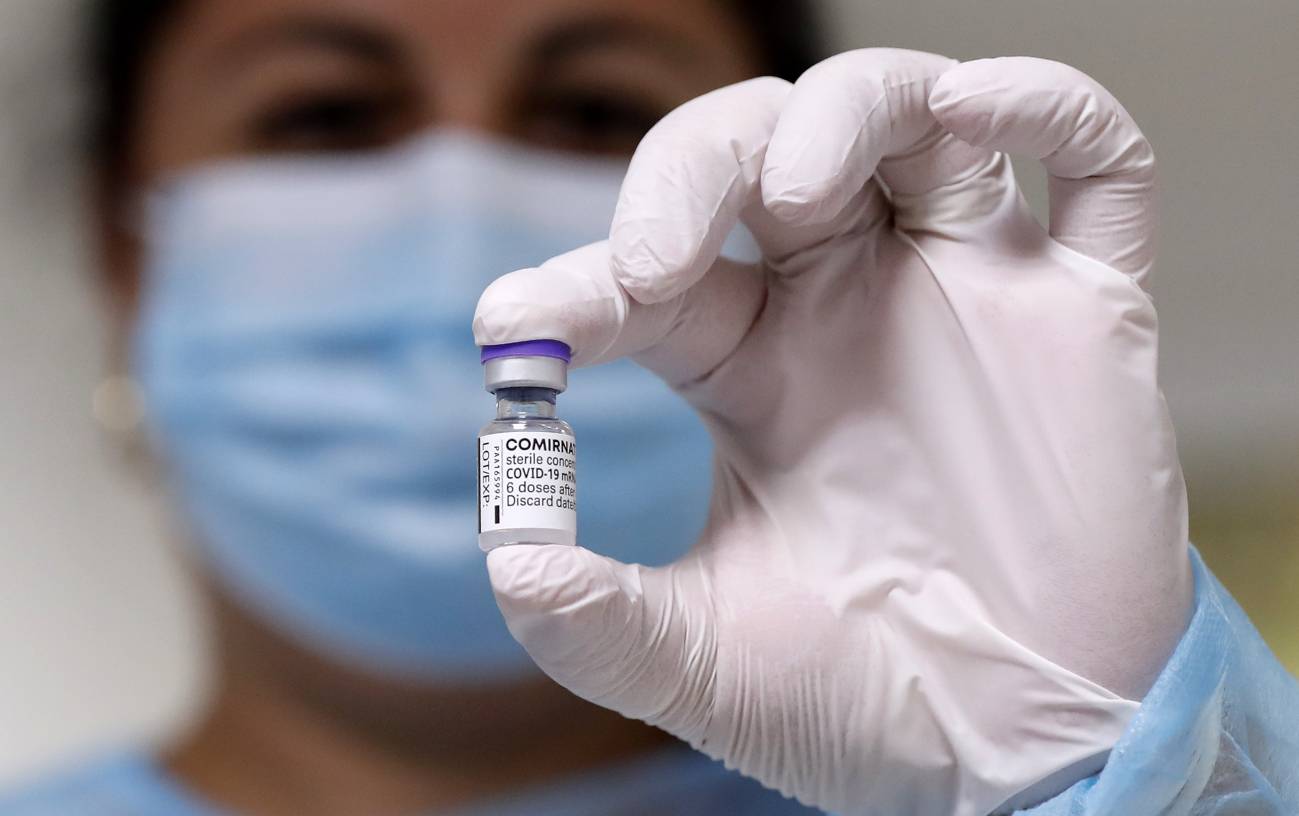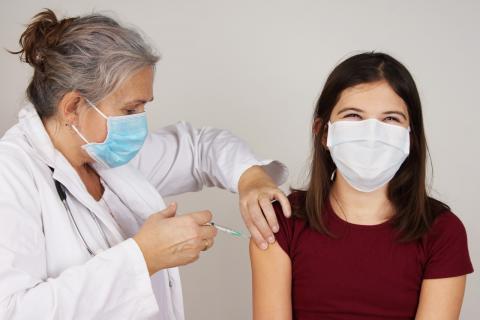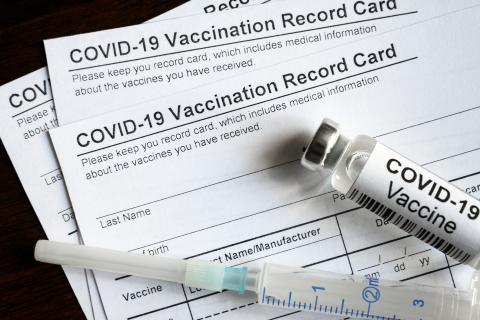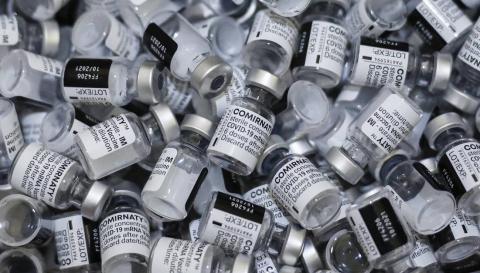Reactions to Pfizer executive's claim that they did not test whether covid-19 vaccines stopped transmission
During Pfizer's appearance before the European Parliament this week, a company executive responded to the question of whether "Pfizer's vaccine was tested to stop transmission of the virus (SARS-CoV-2) before going to market" by saying "no".

José Alcamí - transmisión
Pepe Alcamí
IDIBAPS researcher and scientific director of the HIV Unit at Hospital Clínic de Barcelona
In my opinion in the answer the Pfizer delegate confuses a word because she is asked about stopping transmission and she answers: "Did we know about stopping immunization [sic] before it entered the market? No!". I understand that what she meant to say was: "Did we know about stopping transmission before it entered the market? No!".
The designs of all the phase III studies of the COVID vaccines were not designed to measure this parameter - protection against transmission/infection - because the endpoints of the trials, the efficacy parameters that were assessed, were the development of covid symptoms, mild, moderate or severe. What the studies show, and what they say in the publications, is that the vaccines protected against the development of symptoms, mild or severe, i.e. they protected against the development of symptomatic disease or death.
To know whether they blocked transmission, it would have been necessary to perform a weekly or bi-weekly PCR on all trial participants to see if those vaccinated suffered less asymptomatic infection or did not become infected, which is not feasible given the number of patients included in these trials. In fact, for many vaccines the endpoints are protection against disease, not germ transmission.
Subsequent work by various groups including the CDC and the UK Vaccine Study Group concluded, particularly in cohorts of healthcare workers who had routine PCRs even if they had no symptoms, that vaccines, including Pfizer's, had a high degree of protection against infection, indicating that they blocked transmission.
These data on protection against transmission refer to the pre-omicron era, with D614G, alpha and delta variants. They are not extrapolable to omicron against which protection is diminished, as it partially escapes the immune response and where two-dose vaccination has been shown to be much less protective against disease and also against transmission.
Rial - transmisión
José Gómez Rial
Head of the Immunology Department at the Complejo Hospitalario Universitario de Santiago de Compostela (CHUS), Servicio Gallego de Salud (SERGAS)
With vaccines, science and politics have been mixed in a way that has led to a loss of confidence in a tool that is estimated to have saved more than 20 million lives during this pandemic. The purpose of any vaccine is to prevent death, hospitalisation and serious illness, never to prevent contagion. It is true that some in the pharmaceutical company attributed to the vaccine capabilities that had not been demonstrated and for which clinical trials had not been designed. In short, the vaccine was 'sold' far beyond its capabilities (and the capabilities of all existing vaccines). This did tremendous damage to the vaccine and to science in general.
África González - transmisión EN
África González-Fernández
Professor of Immunology at the University of Vigo, researcher at CINBIO, and member of the RAFG
There is a very important distinction to be made in relation to vaccines:
- Preventing transmission: means generating protective immunity that prevents the person from becoming infected and therefore having the pathogen. This would help to have herd immunity in a shorter time.
- Preventing severe disease-deaths-sequelae: generating immunity that protects the vaccinated individual.
These are two very different things. Most vaccines do not prevent transmission of the target pathogen; they protect against serious infection. They are not "sterilising".
In any case, trials to see if a vaccine prevents transmission of a pathogen are very complex, especially in the pandemic situation. The urgency was to act to induce a good immune response to stop the massacre of the pandemic in terms of deaths, seriously ill patients in ICU and hospitalisations. Reality has shown the effectiveness of the vaccines, but also that they were only slightly effective in preventing transmission of the virus.
We have been tremendously lucky with vaccines that in less than a year showed an efficacy of more than 90% with a stupendous safety record. I think we should congratulate ourselves on that.
Ignacio J. Molina - Pfizer transmisión EN
Ignacio J. Molina Pineda
Professor of Immunology and Director of the Department of Biochemistry and Molecular Biology 3 and Immunology at the University of Granada
The non-sterilising nature of all vaccines, not just Pfizer's, has been known to the scientific community from the outset and has never been hidden. The design of all vaccines and the mechanism of virus infection, which occurs through the nasal mucosa, suggested from the outset that any parenteral administration would not interrupt virus transmission as no potent immunity would be triggered in the respiratory mucosa to block the virus in situ.
Achieving a vaccine that interrupts transmission would be ideal, but so far this has not been achieved with any of the vaccines that have been developed because of the complexity involved. In contrast, vaccines have been developed that greatly boost the immune system and are highly effective in preventing severe COVID. This has been the goal of all clinical trials and none have incorporated interruption of transmission, which was clearly a secondary goal. In the epidemiological situation we found ourselves in, the urgent thing was to prevent the development of serious pathologies and, most importantly, to reduce mortality rates. This objective has been fully achieved.
Sonia Zúñiga - Pfizer transmisión EN
Sonia Zúñiga
Virologist at the National Biotechnology Centre (CNB-CSIC)
I don't understand the spin on this or the surprise, if anyone is surprised. The protocols for the clinical trials of the vaccines, as well as the results, were made public in the FDA and EMA reports when evaluating the vaccines. In virtually all cases, with the exception of AstraZeneca, no vaccine company studied efficacy in protecting against infection. The studies focused on efficacy in protecting against severe illness, hospitalisation and death. This is, on the other hand, understandable and, in fact, what the WHO demanded is that there should be a vaccine that prevents severe disease in at least 50% of cases. These vaccines were well above this threshold in efficacy in clinical trials.
From the outset, from the results in animal models and from the route of administration itself, scientists warned that these vaccines were very good at preventing severe disease, but not infection. This does not detract from the fact that these vaccines are being instrumental in controlling the pandemic and preventing hospitalisations and deaths. It is because we have them that we are in a better position to deal with the virus.



